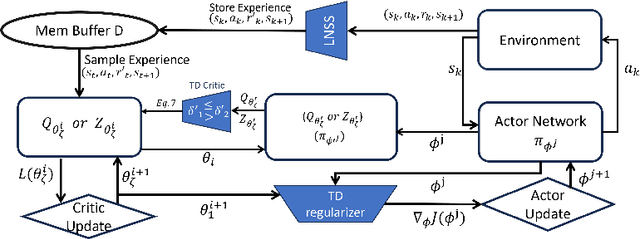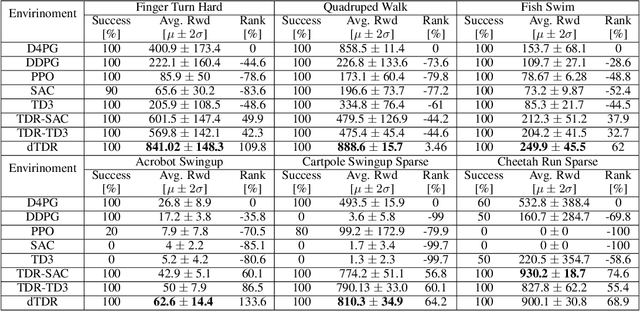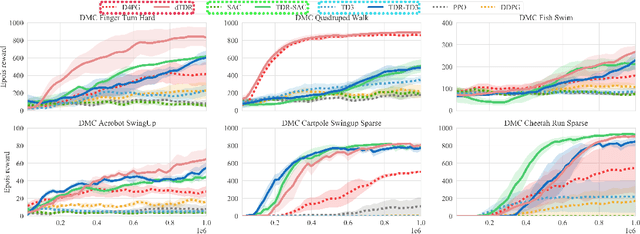Mitigating Estimation Errors by Twin TD-Regularized Actor and Critic for Deep Reinforcement Learning
Paper and Code
Nov 07, 2023



We address the issue of estimation bias in deep reinforcement learning (DRL) by introducing solution mechanisms that include a new, twin TD-regularized actor-critic (TDR) method. It aims at reducing both over and under-estimation errors. With TDR and by combining good DRL improvements, such as distributional learning and long N-step surrogate stage reward (LNSS) method, we show that our new TDR-based actor-critic learning has enabled DRL methods to outperform their respective baselines in challenging environments in DeepMind Control Suite. Furthermore, they elevate TD3 and SAC respectively to a level of performance comparable to that of D4PG (the current SOTA), and they also improve the performance of D4PG to a new SOTA level measured by mean reward, convergence speed, learning success rate, and learning variance.
 Add to Chrome
Add to Chrome Add to Firefox
Add to Firefox Add to Edge
Add to Edge